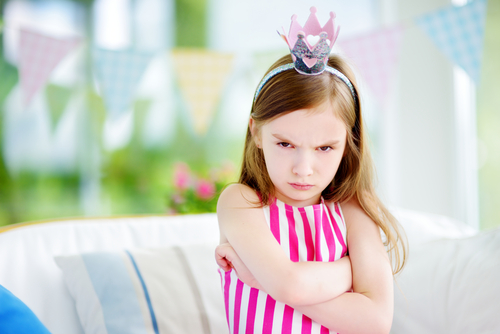
“Does my son need therapy?” “Should I get my daughter counselling?”
There are questions we’re asked all the time here at Capital Choice Counselling in Ottawa.
The series of events – or the long, gradual decline – that brought you to this place is significant and shouldn’t be diminished in any way. Chances are, if you’re asking these questions at this point, your child or teen may greatly benefit from counselling or therapy. Surely not every child needs therapy. But how do we separate “normal teen behaviour” or “just a phrase (s)he is going through” from more serious issues that warrant specific, individualized attention? That’s what we’ll be looking at today, as we discuss how to identify signs and factors that it’s time to get therapy for your child, pre-teen or teenager.
What is “Normal Behaviour”? Do I have nothing to worry about?
While we can’t say with certitude here that you have nothing to worry about, what we can aim for is to separate the typical behaviour seen during the course of one’s youth versus areas of more immediate concern. In this first category, we’re addressing generalities about the struggles and pains of growing up. It doesn’t necessarily mean that there aren’t underlying issues, just that these actions or attributes on their own are not indicators of that. We would caution you to monitor the situation and maintain open lines of communication with your child.
What’s the norm for teenagers and adolescents?
The word “normal” is, of course, highly subjective. Teens are in an awkward, in-between stage of life – to say the least. They’re not adults yet, but they’d like to think they were. This can result in a wide array of “interesting” decisions and a series of actions that will leave you shaking your head! Just remember, you too were once that age – we all were, and most of us either look back and laugh at that phase … or maybe rather not think about it at all! What are some things to look for (and reasonably expect) as common teen or adolescent behaviour?
- Disliking things that he or she used to like
- An interest in new things (that you’d rather they didn’t!)
- Changing hairstyle, wardrobe, and other tastes
- Hanging out with a different crowd
- Having more quarrels or disagreements (with friends, family, et al)
- A certain amount of moodiness (often seemingly random & unpredictable)
- A low-to-medium level of non-compliance and defiance
- Struggling to realize the consequences of their actions
Again, not to say that these aren’t items for concern. If you were to see several occurring at the same time, for example, and at a more severe level, it might be time for therapy. But seeing these on their own, in moderate amounts, isn’t necessarily an indicator that he or she needs to see a counsellor.
What’s usual behaviour for a younger child?
- Learning to understand personal space, barriers & responsibilities (chores, homework, etc.)
- Struggling with failure, challenges & obstacles
- Problem-solving (and the inevitable albeit temporary frustrations)
- Occasional minor aggression (the variety solved by a time-out)
What if you’re unsure?
Maybe things are in more of a gray area? If that’s the case, your initial course of action would be to open up or expand the dialogue you have with your son or daughter, asking questions and finding out more about why she did what she did, why he said what he said, etc. Some suggestions:
- Be supportive, not confrontational
- Ask, don’t demand
- Ask about their friends, school, interests, etc.
- Listen actively and follow up supportively
- Don’t be judgmental
- Seek permission to have a chat, don’t intrude
- Let him or her know that you’ve got their back
- Remind your son or daughter (and yourself!) that you too were once that age, and you remember doing some ‘silly’ and ‘odd’ things – a few of which you might have regretted or at least been ashamed of afterwards
- Be overly clear that “the door is always open” and they can always come to you with questions or concerns, knowing that they won’t be judged or harshly criticized (this is easier to say than to follow up with action, but it’s the latter that is crucial)
If you find yourself in a gray area and increasingly frustrated, despite trying the aforementioned steps, your son or daughter may be a candidate for therapy.

When is it time for therapy or youth counselling in Ottawa?
What are some signs that your child needs more immediate attention? These will range from the somewhat subtle to the overt. Here are just some actions, behaviours or signs that you’ll want to recognize:
- An increase in defiant behaviour / non-compliance
- Departures in mood, more sharply than previously seen
- Anger that goes beyond simple disagreement or momentary frustration
- Eating disorders / issues with food & body image
- Sexual acting-out
- Depression (more than just a ‘moody day’ or a ‘phase’)
- Drug and/or alcohol use
- Involvement in illegal activities
- Failing school (more than just not doing an assignment here or there)
- Running away
- Self-harm / cutting / suicidal behaviour
Any one of these (not uncommon with some teens) would be a matter of concern and probably warrants counselling. A combination of two or more should have you seeking therapy for your son or daughter ASAP.
A few things to do as you begin the process.

It’s Not Your Fault
It’s important to remember that children and teens experience depression, anxiety, disorders and behavioural issues. Not all, but many do – and it’s been going on throughout history. Oh sure, we’re more aware of it these days. But as you go through the process, try not to blame yourself. It’s not to say that you couldn’t have done anything differently (we all have specific words & actions we’d like to take back or get a do-over for). But the chances are pretty remote that your child is experiencing major issues as a direct result of something that you did or said. In therapy, we can go over more helpful, supportive verbiage to use with your child or teen, which helps address the symptoms. Remember, this is not a reflection of your or your abilities to be a good parent.
Talk to the Pediatrician or Doctor
A good first step in seeking therapy is taking your child to the doctor. Initiate a conversation about possible medical causes for the symptoms you’re seeing (depression, anxiety, etc.). In some cases, a simple blood test or X-ray can determine that there are other issues at play. These could include:
- Anemia
- Low B-12 levels
- Thyroid or glandular issues
- Other physical ailments or disorders
In many other instances, the doctor will give you a referral or suggest seeing a psychologist or counsellor. Don’t be dismayed by this; on the contrary, it’s a tremendous opportunity for your child or teen to begin the journey of healing!
Talk to the School
Speaking with your child’s teacher, principal, guidance counsellor or other school official can shed a lot of light on what he or she goes through. They might, for example, inform you of one or more of these:
- Potential learning disability (requires further research & diagnosis)
- Bullying
- Conflicts with friends or classmates
- Signs or symptoms that they’ve observed in the course of the school day
Since kids spend a significant amount of their lives within the confines of the school, that’s often an excellent source of facts & observations about your daughter or son.

How can Capital Choice Youth Counselling in Ottawa Help?
Making the first call for help is rarely easy. But it’s probably one of the best things you’ll ever do. When you fill out a contact form or call us on the phone, we’ll talk with you about what’s taking place with your child, what you’re observing, sensing and feeling. Then we’ll guide you to one of our qualified, trained and highly skilled youth counsellors in Ottawa or around the National Capital Region. Appointments can be set up on days and times that fit your schedule. Our therapist will work with you and your child, listening to assess their needs, then getting started on the road to recovery by finding solutions. The length of the therapy depends on the situation and what you want to accomplish, from as little as a few sessions, to standing appointments across a span of months. We’ll give you and your daughter or son take-aways and things to work on between the sessions. And we’ll gladly and patiently answer any questions you may have. That’s our commitment to you. Contact Capital Choice Counselling today to get started with youth counselling in Ottawa.


